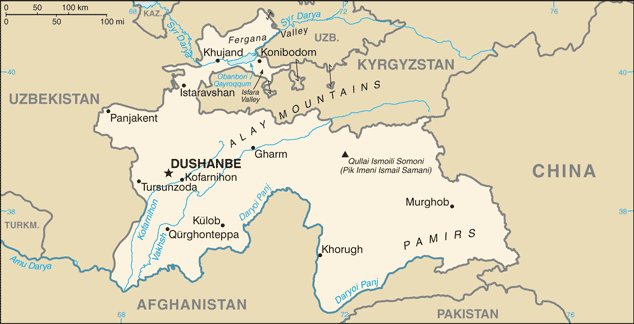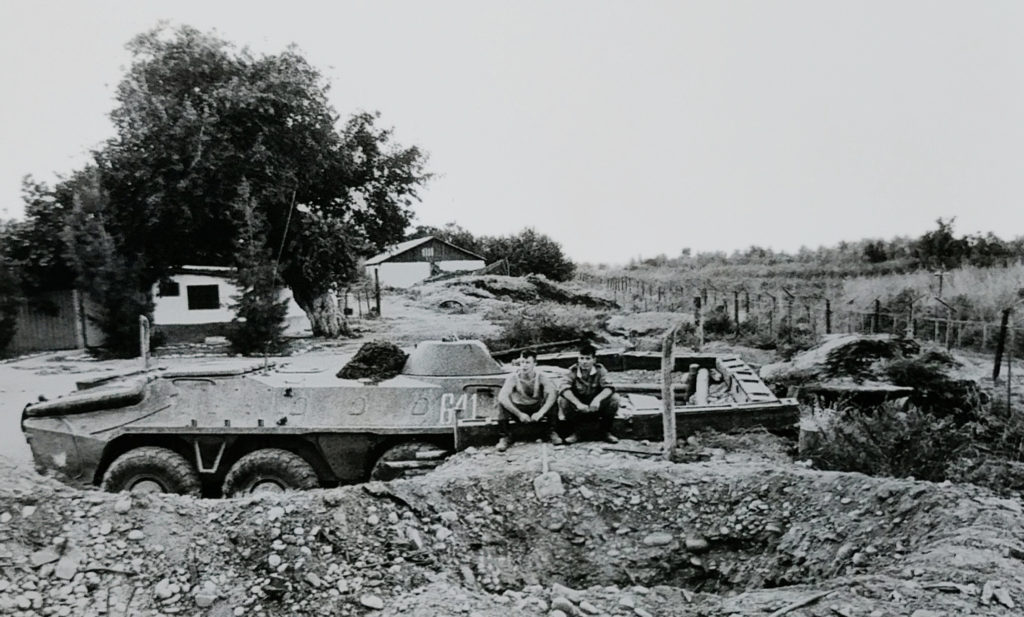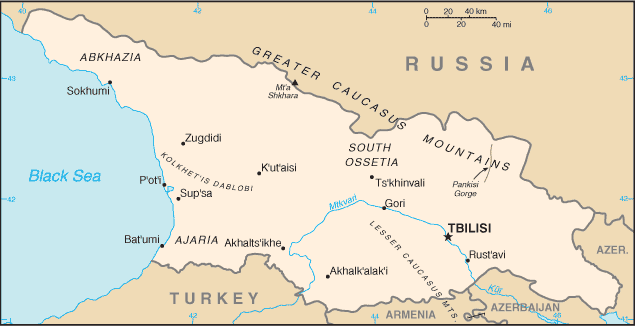
PRIVATE Pavel Mikheyev will never know what hit him. Walking home through the town of Kurgan-Tyube, in Tajikistan, last week, the Russian soldier was caught in a hail of bullets fired by three gunmen who fled the scene.
The news of his death did not reach the outside world until two days later. But it was not really news.
Assassinations are not unusual in the former Soviet republic, bordering Afghanistan, where the pro-Moscow National Front government is fighting an undeclared war against a coalition of parties led by Islamic Renaissance Party militants.
Three officers attached to the Tajik defence ministry have been murdered in the past week. More than 30 Russian border guards have been killed since the beginning of last year.
An unknown number of Tajik militants were killed during a recent two-day operation along the Afghan border, according to Russian officials. The Russians accuse the militants of shelling Russian border posts and mining border areas.
The fighting and killing have been going on for two years, largely unnoticed by the outside world. But according to the Red Cross, up to 50,000 people have died, making it the bloodiest conflict in the former Soviet Union. Independent human rights organisations put the death toll nearer 100,000.
So bitter has the conflict become that the Islamic opposition has been forced to flee into the mountains, to other former Soviets republics, or to Afghanistan or Iran.
Many have become mojahed – spiritual relatives of the Afghan mojahedin, or religious warriors, who fought against Soviet power in Afghanistan. Thousands of opposition fighters are reportedly deployed throughout Tajikistan, fresh from training camps in northern Afghanistan and ready to take up arms.
In Gorno-Badakhshan, a mountainous province that makes up almost half the territory of Tajikistan and is a main opposition stronghold, a bearded, uniformed man, known only as Salaam, commands the mojahed who keep government forces out of the province.
‘Our strongest weapon,’ he said, ‘is our faith in God, our faith in the future.’
The former director of a radio and electronics shop, Salaam said he became a fighter when he witnessed atrocities committed by the National Front.
Human rights organisations and foreign journalists have reported mass graves, concentration camps and disappearances. In a mountain village a few miles from Salaam’s headquarters, one mojahed showed signs of torture on his chest. He said he had been in a concentration camp and a car jack was used to push in his ribs.
Some of the mojahed say they have received training in ‘schools of terror’ in Pakistan, within walking distance of Gorno-Badakhshan. Pakistan denies involvement in the internal affairs of Tajikistan, but has a history of supporting Afghanistan’s mojahedin.
The fighters talk of a jihad against the government which would start with a wave of terrorism, followed by co-ordinated attacks on the Russian border posts and then a full-scale war.
The government insists that the opposition is simply groups of disorganised criminals and occasional terrorists. But visits to Salaam’s base and other opposition camps in Gorno-Badakhshan showed that the mojahed have a well-developed communications system and a command structure.
Salaam and other commanders said they reported to senior leaders in Taloqan, a four-day trek through the almost roadless north-west provinces of Afghanistan.
Taloqan is the temporary home of Rezvon, the famed opposition military commander, reported to be the defence minister of the Tajik government in exile, and of Abdullo Nuri, the religious leader.
Several thousand refugees moved there after the larger camps in Qonduz, nearer the border, were bombed by one of the warring sides in Afghanistan’s civil war. It is where much of the humanitarian aid from Islamic relief organisations is distributed.
Shadovlat Yusmon, chairman of the Islamic Renaissance Party, said Rezvon was already in Tajikistan. ‘We will continue resistance until we gain real independence,’ he said. ‘We have enough strength to do that.’
He said there were 100,000 refugees from Tajikistan in Afghanistan, not counting the fighters. Humanitarian aid organisations put the number closer to 70,000. But, he added, most of the fighters were already in Tajikistan.
Mr Yusmon says the opposition’s main demand is for a representative interim government and general elections. If this goal is not achieved through negotiations, it will have to be reached by force.


